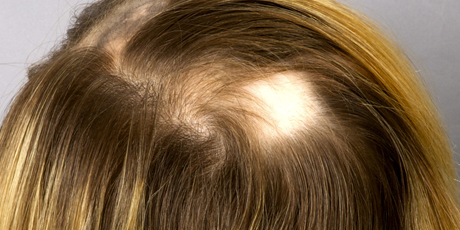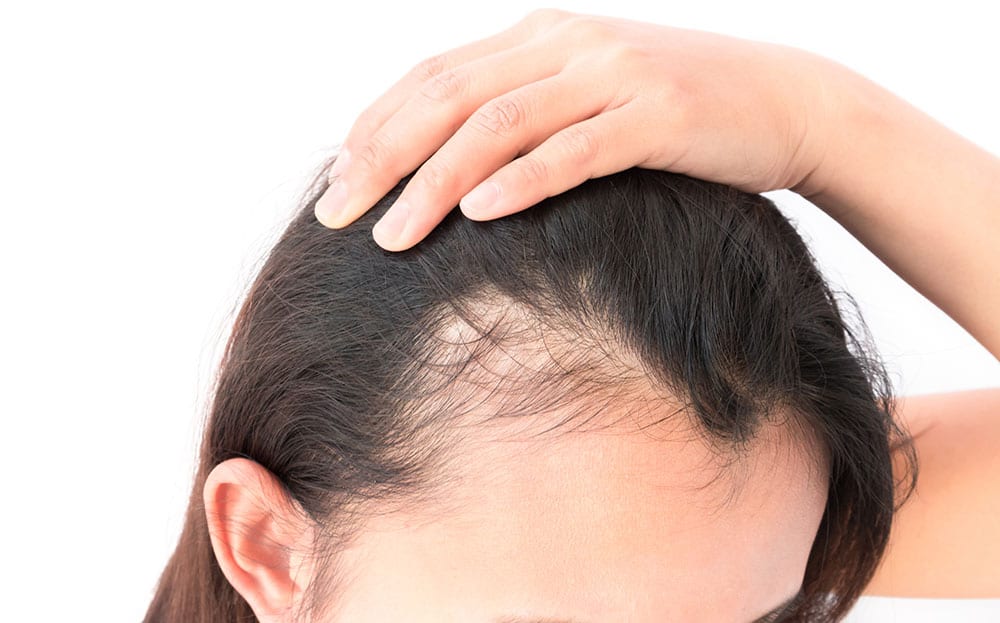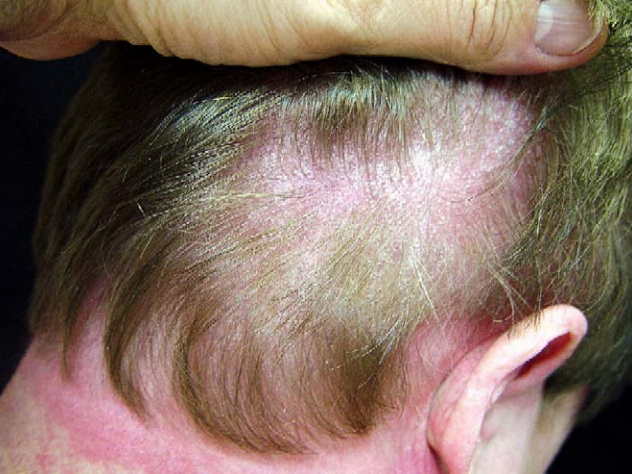7 Autoimmune Diseases That Cause Hair Loss
By Mary Ann
10 February 2023
Autoimmune diseases are a group of conditions in which the body's immune system mistakenly attacks healthy cells and tissues. There are over 80 different types of autoimmune diseases, and many of them can cause hair loss as a side effect. In this blog post, we will discuss some autoimmune diseases that are known to cause hair loss.

Alopecia Areata

Alopecia Areata is an autoimmune disease that causes hair loss in patches on the scalp, beard, and other areas of the body. This condition occurs when the immune system attacks hair follicles, causing hair to fall out suddenly. Alopecia Areata can affect people of any age and is more common in people with a family history of autoimmune diseases. There is no cure for Alopecia Areata, but some treatments, such as corticosteroid injections or topical medications, can help slow down hair loss and promote hair regrowth.
Lupus
Lupus is a chronic autoimmune disease that affects many parts of the body, including the skin, joints, kidneys, and brain. One of the most common symptoms of lupus is hair loss, which can occur on the scalp, eyebrows, and eyelashes. This hair loss is often accompanied by other symptoms, such as fatigue, joint pain, and a butterfly-shaped rash on the face. The hair loss associated with lupus is usually temporary and can be treated with medications such as corticosteroids or immunosuppressants.
Sjogren's Syndrome

Sjogren's Syndrome is an autoimmune disease that affects the glands that produce tears and saliva. This condition can also cause hair loss, as well as dryness of the mouth and eyes. The hair loss associated with Sjogren's Syndrome is usually diffuse, meaning it occurs evenly over the scalp, rather than in patches. Treatment for this condition typically involves medications that increase tear and saliva production, as well as hair growth products to promote hair regrowth.
Rheumatoid Arthritis
Rheumatoid Arthritis is an autoimmune disease that causes inflammation and pain in the joints. This condition can also cause hair loss, as well as other symptoms such as fatigue, joint swelling, and a fever. The hair loss associated with rheumatoid arthritis is usually diffuse and can be treated with medications that reduce inflammation and promote hair regrowth.
Thyroiditis

Thyroiditis is an autoimmune disease that causes inflammation of the thyroid gland, which produces hormones that regulate metabolism. This condition can cause hair loss, as well as other symptoms such as fatigue, weight gain, and depression. The hair loss associated with thyroiditis is usually diffuse and can be treated with medications that regulate thyroid hormone levels and promote hair regrowth.
Psoriasis
Psoriasis is an autoimmune disease that causes patches of red, scaly skin to form on the scalp, elbows, and knees. This condition can also cause hair loss, as the scaly plaques can form on the scalp and lead to hair loss in those areas. The hair loss associated with psoriasis is usually patchy and can be treated with topical medications or light therapy to reduce inflammation and promote hair regrowth.
Dermatomyositis

Dermatomyositis is an autoimmune disease that cause inflammation of the muscles, leading to muscle weakness and wasting. These conditions can also cause hair loss, as well as other symptoms such as fatigue, difficulty swallowing, and a rash. The hair loss associated with Dermatomyositis is usually diffuse and can be treated with medications that reduce inflammation and promote hair regrowth.
In conclusion, some of the most common autoimmune diseases that cause hair loss include Alopecia Areata, Lupus, Sjogren's Syndrome, Rheumatoid Arthritis, and Thyroiditis. If you are experiencing hair loss, it is important to see a doctor who can help diagnose the underlying cause and provide appropriate treatment. With proper care and treatment, many people with autoimmune diseases are able to manage their symptoms and maintain healthy, full heads of hair.
You Might Also Want To Read This
Popular Posts





